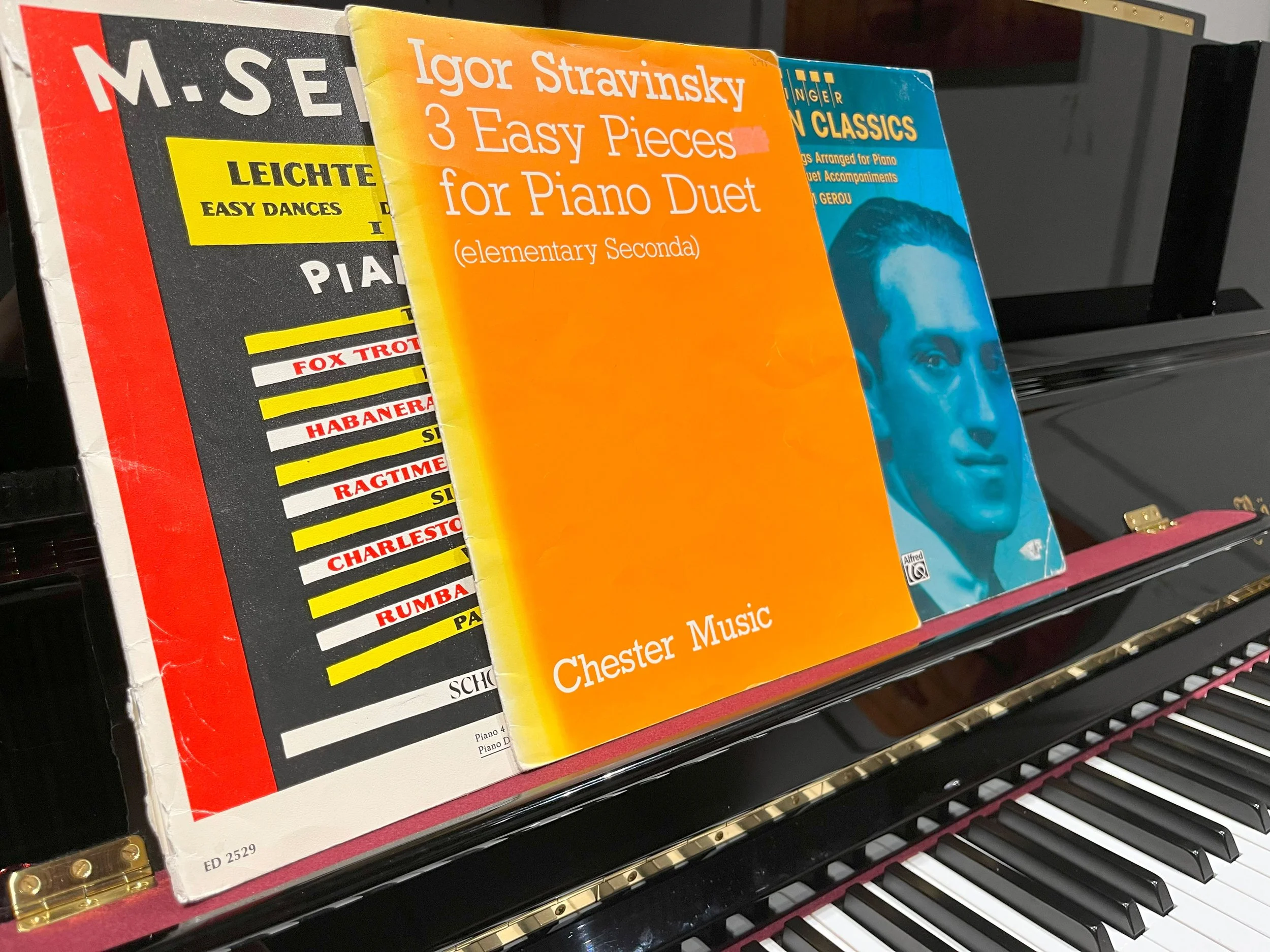My Goal as a Teacher
Travelling on the tube recently I unexpectedly bumped into a student whom I had enjoyed teaching for many years until lockdown made it too difficult. I knew that she had continued to play after the lessons had stopped, but was delighted to hear (over a later Zoom call) just how important piano-playing remains in her life and that she managed to establish a routine of daily practice, often hearing my voice in her head reminding her of good habits! She’s quite happy to keep playing some of the music she learnt with me, and in particular some Gershwin which she finds never grows stale – isn’t that lovely?
I told her that my goal as a teacher was always to try to foster the skills that enable students to continue enjoy playing when they don’t have lessons, so I felt very pleased that, at least in this case, it had worked!
It is so common for piano students of any age to stop playing when they stop lessons. They typically leave lessons with two or three pieces learnt for an exam which soon get rusty, but because traditional teaching methods tend to focus more on learning pieces than readings skills, they lack the confidence to explore and learn new repertoire on their own. Combine this with an equal lack of ability to pick out tunes by ear and accompany with simple harmonies, or to enjoy improvising some basic patterns of their own, and you have students who lack the skills which will keep them playing.
Knowing that they will be able to keep going and have lasting skills and pleasure if lessons have to stop is so important for them and for me. Otherwise – what’s the point? Maintaining a student’s dependence on a teacher has often been a common trait of traditional learning but it’s not doing them any favours – in my view it’s far better to encourage autonomy. That’s what real teaching is all about – like having a child learn to cook before leaving home. There is a danger for teachers in wanting to keep pupils dependent as it keeps them in a position of power, feeling needed, but it’s important to be able to let go and let students explore for themselves, just as a parent eventually has to. I suppose you could call it working yourself out of a job!

